








Welcome to the Spring edition of the Trinity Pulse. We kick off this edition with a celebration of Trinity medicine’s ranking in the top 100 medical school globally, and a spotlight on Trinity’s child health research excellence, under our theme of ‘Bench’. We continue our ‘B’ themes with ‘Blackboard’ a series of online sessions hosted by the Online Learning Education Committee showcasing online education initiatives in our School, discussing pedagogy underpinning online teaching and learning . ‘Bedside’ celebrating education with student reporter Marie Cormican’s blog entry about her placement on the Isle of Man. ‘Beyond’ refers to SoM’s links with the wider world, showcasing a TCD team on the Camino, ‘Walking the Talk for Dementia’. This issue also highlights two in-depth interviews: one in our ‘long read’, which delves into the professional life of Clare Whelan, clinical instructor, and another, which reports on the organization of the ‘Teddy Bear Hospital’.

Enjoy and celebrate the varied and excellent activities of our SoM community.
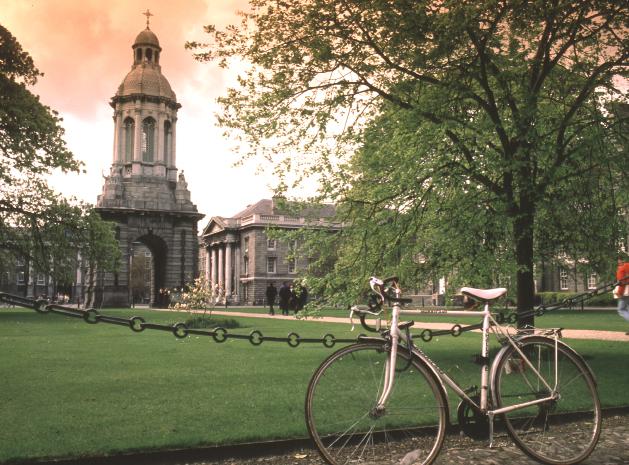

The latest results show a rank evolution for the School of Medicine from 105 in 2021, to 95 in 2022, to the newly appointed 83 for 2023.

The latest result is a welcome affirmation of the school’s efforts to offer a high-quality education to our students to make Trinity’s School of Medicine the school of choice for those considering medicine at third level.
The QS World University Rankings by Subject are compiled annually to help prospective students identify the leading universities in a particular subject. They provide comparative analysis on the performance of more than 15,700 individual university programmes, taken by students at 1594 universities across the world
Commenting on the QS Subject Ranking 2023 results, Professor Colin Doherty, Head of School of Medicine, said, “I am delighted that the School has been ranked No. I in Ireland and No. 83 in the World for Medicine according to the latest QS World University Rankings by subject. This is great news for both Ireland’s and Trinity College Dublin’s reputation on the Global stage. While rankings are only one measure of success and have shortcomings, we will
accept this successful performance as an acknowledgement of the powerful impact of the research output and highquality education that continues to distinguish the School of Medicine”.
The latest round of the QS World University Rankings by Subject has ranked Trinity College Dublin number 1 for the subject of medicine in Ireland and number 83 in the world.
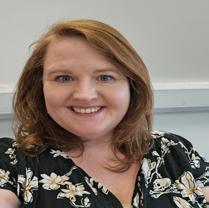
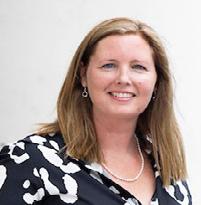
Professor Colm Doherty, Head of School, welcomed Sarah’s appointment, “Sarah has a strong track record in research and is well positioned to drive the delivery of and support the School in identifying and achieving key strategic priorities. This includes the implementation of our 5 year research strategy to 2026. I wish Sarah well in this role and very much look forward to welcoming her as a key member of the School’s Executive team.”
On her appointment, Sarah said: “I’m excited to take on the role of Director of Research for the School. I look forward to implementing the school’s strategic plan and to promoting the wealth of excellent researchers we have across the school.”
“I would also like to take this opportunity to thank the outgoing Director of Research, Professor Ursula Fearon, for her dedicated service.” Prof. Doherty
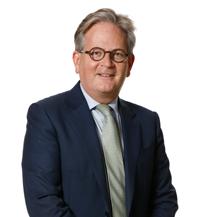
Professor Colm Doherty: I’m delighted to welcome Prof Colm Bergin, Discipline of Clinical Medicine and Consultant in Infectious Diseases at James’s into the role of Director of Global relations. Prof Bergin brings a wealth of experience as a world renowned clinician and researcher in James’ over the last 20 years with extensive national and international collaborations. He was also the Dean of Education in the Royal College of Physicians where his role encompassed the development of many of the skills required for the devotement and maintenance of relationships with our alumni and our clinicians and research partners around the world. Prof Bergin has great plans for the expansion of our Global reach and he will need all of our support and encouragement in achieving that over the next few years.
On his appointment, Colm said “I am delighted to be appointed Director of Global Engagement. On behalf of my colleague Daniela Tropea, Deputy Director, and working with Global Engagement, TCD and national partners, we look forward to building on the successes of our predecessor Professor Seamus Donnelly in sustaining our international partnerships and to delivering a strategic programme of outward-looking, customer-focused educational programmes and to promoting international clinical exchanges and research collaborations. This is an immensely exciting time for GE given the opportunities available to us to promote the School and University.”
I’m delighted to welcome Prof Richard Deane as the new Director of Undergraduate Teaching and Learning. Prof Deane brings a wealth of experience from his role in the Discipline of Obstetrics and Gynaecology, which regularly features on the top of the list of best learning experience from our students. Richard also was Chair of the Joint Ethics Board for SJH and TUH and will also bring the idea of ethics and research integrity to the role. I’m excited that Richard will be joining the management team and will work alongside our new welfare officer to enhance the learning experience of all our undergraduate students.
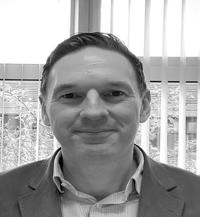
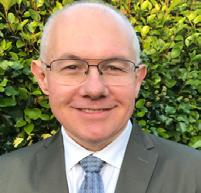
Prof Joe Harbison is retiring as Director of Undergraduate Teaching and Learning after his second stint in the role. Prof Harbison will be fondly remembered by all staff and students for his commitment to excellence in learning combined with a strong pastoral presence that came to the fore during the extreme pressure placed on undergraduate teaching and learning during COVID. Prof Harbison and I graduated from UCD within a year of each other in the 1980s and our careers and been closely matched. I’m delighted to say that Joe will be staying on as Deputy Head of School to help with the next phase of school strategic development and the exciting prospect of an academic health sciences system.
We are delighted to welcome Ms Simone Cameron-Coen to the School of Medicine. Simone recently took up the new post of Student Support and Welfare Officer. This is a completely new role, Simone will act as a point of contact and support for undergraduate and postgraduate students encountering academic, emotional, psychological, or other challenges during the course of their studies. The role is to provide initial advice and support and to coordinate referral to other support services within the University and College. Some of you will already know Simone, and she joins the School with significant experience in College, having worked as the Civic Engagement Officer, and as the PG Welfare and Education Officer. We wish her every success in this exciting new role.

The report which outlines the extensive and life-changing range of child health research taking place across multiple disciplines in Trinity College is being launched as part of an exploration event looking towards Trinity’s Vision for Child Health 2040.
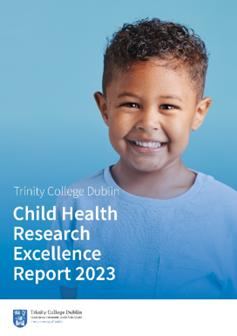
A new report on child health research at Trinity College Dublin was launched on Thursday, May 4th 2023 at Trinity’s Biomedical Sciences Institute (TBSI). It represents the first time that a mapping exercise of child health research has been undertaken in Trinity.
The report: ‘Child Health Research Excellence Report 2023’ reveals the strength of child health research across Trinity which covers a diverse expanse of research topics spanning 11 schools, 3 faculties and over 80 principal investigators. The report will foster further collaboration and awareness of important issues in child health both within the university, and to the international community of patients, families and researchers. It offers a comprehensive overview of areas of research expertise in cancer, genomics, immunology, infectious disease, neurology, neonatology, dermatology, mental health, and child health policy.
Eleanor Molloy, Professor of Paediatrics and Child Health, Trinity College and Trinity Translational Medicine Institute (TTMI), said:
“This report highlights the extensive and broad-ranging research themes and expertise in Child Health in Trinity
College. This will allow researchers to collaborate within the university, nationally and internationally more effectively to improve child health in partnership with children and their families.”
Trinity aims to ensure interdisciplinary integration and promote research in all aspects of childhood and children’s biological, psychological, cognitive and socio-emotional development and well-being. The advancement of novel and impactful research to improve children’s health in partnership with Trinity’s international collaborators is of paramount importance.
The report will engage staff and students in dynamic conversations and provide a strong framework to build this research for the future.
Professor Sinéad Ryan, Dean and Vice President for Research, Trinity College, said:
“I am very pleased to welcome the publication of this report. It captures the wide range of research relating to child health that is happening in Trinity across schools, disciplines, and institutes, and shows how researchers are harnessing their collective expertise for the greater good, which is one of the principles of Trinity’s Research Charter.”
The report was launched as part of a wider panel discussionwith key Trinity experts - as a first step to explore the university’s vision for child health for 2040.
Looking ahead to future advances in this field of research which will continue to transform lives, Owen Smith, Professor of Child, Adolescent & Young Adult Oncology, Trinity College, said:
“Child & adolescent heath will lead the healthcare transformation – for example the ‘medical home’ is a paediatric concept. We need to train leaders to think not only about children but also their transition from childhood to adulthood. We need to shift from a focus of disease and disease management to health and health preservation.
We will have the ability to predict the health risk of children as children and those who will become adults by utilising the exponential technologies that are converging, namely, our ability to rapidly sequence human genomes and interpret the sequence by AI/machine learning. To do this optimally we will need to train the next generation of healthcare professionals in the ethical, moral and legal aspects of this new endevour.”
READ: The report: ‘Child Health Research Excellence Report 2023’ is available as an interactive pdf at this link: https://www.tcd.ie/medicine/research/child-health/
WATCH: Trinity Child Health Researchers’ video presentations at launch of report https://www.tcd.ie/medicine/research/ child-health/podcasts.php

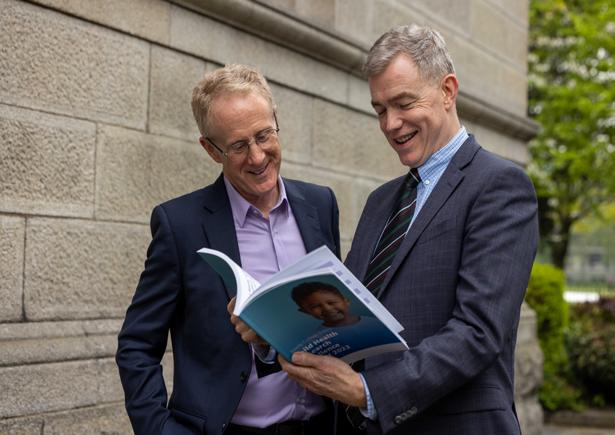
The OLEC presented four sessions to the end of the teaching term, showcasing online education initiatives in our School, discussing the pedagogy underpinning online teaching and learning.
The first in our series was a hybrid event by Dr Caitríona Ní Shé Academic Developer in Academic Practice (unfortunately not recorded) Powerpoint (PPT) and References (MS Word)
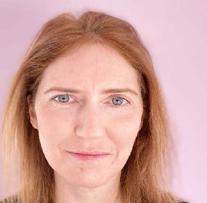
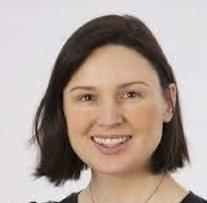
Title: Blended and Online Learning: Supporting Student Learning


This seminar was on teaching strategies for engaging students in blended and online learning. Approaches that support social presence, online discussion, and the use of open educational resources were outlined. Discussion on how these might work in the context of medical education was facilitated.
The third session was given by Dr Eoin O’Dell, Associate Professor, School of Law, TCD

Title: ‘Intellectual Property, Copyright and Teaching Materials’
Panopto Recording Link
The second session was presented by Dr Denis Barry, Assistant Professor and Head of Discipline of Anatomy.
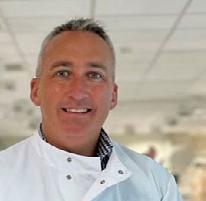
Title: ‘The journey of anatomy education into the blended era and the enduring role of its core pedagogues’
Panopto Recording Link
The fourth and final session was presented by Dr Julie Broderick, Assistant Professor - Discipline of Physiotherapy, and Ms Elizabeth Forde, Assistant Professor – Discipline of Radiation Therapy. They are the School of Medicine’s Champions for the Trinity Inclusive Curriculum Project (Trinity-INC)
Title: ‘Embedding inclusive curriculum principles in online education delivery”
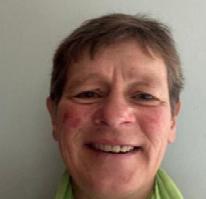
Panopto Recording Link

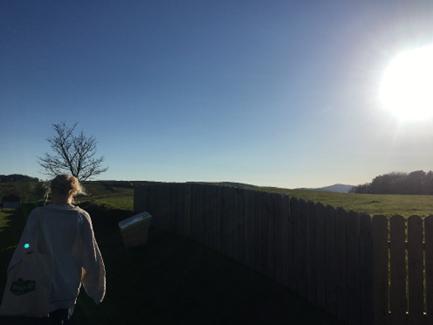

The offer of a four-week placement opportunity in the Isle of Man arose in September of last year, at the start of 3rd year. I hadn’t heard anything about it from older students but the idea of travelling to and living in a new place intrigued me so I signed up straight away. A few weeks after the sign ups, the School of Medicine released the groups of students that would be going to the Isle of Man for placement. There would be groups of four students going for 4-week long blocks from November to April. Myself and three other girls in my year – Aoife Devin, Áine Sweeney and Ruth Hennigan, were scheduled to go for the month of April.

And so, we found ourselves in a small student house just around the corner from Nobles Hospital, on the outskirts of Douglas, in the Isle of Man. Mark Roberts, the student coordinator, has been unbelievably helpful in helping us settle in, both in our accommodation and also on our clinical rotations. He was able to organise placement for all of us in our speciality of choice and gave us a very warm welcome to the Isle of Man. Not only is our accommodation a stone’s throw from the hospital but we were given bikes and transport cards to fully explore the island while we are here. The four of us are all doing different rotations, so we have quite varied experiences. Aoife is on placement in the orthopaedic surgery department, Ruth is doing OB-GYN, Áine is in the emergency department and I am on AMU. With regard to learning, it has been a fantastic opportunity as there is a lot of emphasis put on teaching by the junior and senior doctors. We have tutorials a number of times a week and these involve simulation scenarios and even virtual reality technology. Usually, we go to placement from 9am to about 4pm and then head back home for the evening.
One of the best things about our time here has been the
time we’ve spent exploring the island, in the evenings after placement and on the weekends. Because of the time of year that we are here, the weather is just beginning to pick up and we have had some really sunny spells over the last few weeks. The country side is quite similar to Ireland, with a lot of green fields, trees and large sloping hills. We spend a lot of time going in and out to Douglas, which is the nearest town to us and we have become regulars at one of the coffee shops on the promenade, where we often go to do our lectures.
We are now nearing our final week of placement here and it’s safe to say the time has definitely flown. I have personally really enjoyed my time here, both in the hospital and outside of it. I was very lucky to come with such a great group of girls. We all get on very well and the trip has given us some great memories together. I would definitely encourage any students in 1st or 2nd year to consider applying for placement here as it has been a wonderful experience.
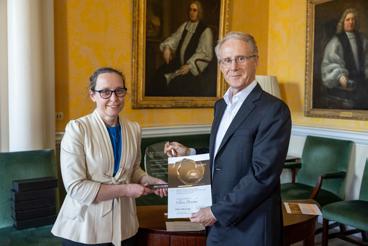

Claire has become known as one of the most committed clinical educators working with TCD and could not be more deserving of this award

Dr Claire Donohoe graduated from Trinity College Dublin in 2006 and is a consultant surgeon specialising in upper GI surgery at St James’ Hospital since 2019.She completed her general surgery training in Ireland and then travelled for two international fellowships in oesophagogastric surgery, in Newcastle-upon-Tyne (UK) and in Minimally Invasive Surgery at Oregon Health & Sciences University (USA). She was awarded a PhD in 2013 for research in molecular oncology with the Dept of Surgery, TCD, funded by the Irish Cancer Society. She is currently conducting research into the immune environment in oesophageal adenocarcinoma and its role in responses to neoadjuvant treatment.
She also has a passion for medical education and holds a Masters in this area from the University of Dundee as well as a Diploma in Simulation from University of Galway. Specific areas of interest include utilising peer learning in medical education and the use of the humanities, specifically narrative based practice, in healthcare practice.
Claire is an invaluable asset to the department and stands out in terms of her dedication to promoting good teaching practice
‘Cancer Voices’: this is an educational podcast series being developed to enhance the undergraduate surgical curriculum, with a plan for use across further specialties and disciplines in the future. As narrative medicine is a particular interest of Ms. Donohoe’s, this project was entirely her idea, and she is directing it. It will involve patients being interviewed on their experience of cancer, covering topics like receiving a diagnosis, undergoing treatment, and life after cancer. This is an extremely innovative initiative which hopes to take the focus away from textbook medicine and take a holistic approach to the care of the patient.
Ms. Donohoe provides weekly early morning tutorials to final year students focused on practical knowledge and skills required for starting intern year. As a recent TCD graduate, I know from first-hand experience that these tutorials stand out in terms of how comprehensive, engaging, practical and memorable they are.


With the ever-increasing diverse population of students within the Occupational Therapy programme, Maureen has been sensitive in supporting many students who require reasonable accommodations on placement. She has been willing, and responsive to making adaptations in the clinical setting to support the student’s learning experience ensuring that they are on an equal playing field and have the opportunity to reach their full potential.
Maureen joined the Practice Education Team as a Practice Tutor in the Discipline of Occupational Therapy, School of Medicine in 2014. She works as a Senior Occupational Therapist in The Royal Hospital Donnybrook with a clinical background and expertise in Neuro Rehabilitation, Fatigue management, Dementia Care, seating, posture, assistive technology and splinting.
Maureen graduated from Ireland’s first School of Occupational Therapy, St Joseph’s College, which was then under the governance of the Eastern Health Board. Since then, she has experienced the growth of the Occupational Therapy profession and journeyed with the educational advances to its current status in the School of Medicine in Trinity.
In 2022, Maureen completed and was awarded the Special Purpose Certificate in Academic Practice, from Trinity College Dublin. As Practice Tutor Maureen has presented at the Practice Education Network Conference in 2021, on the application of the Trinity guided reflection tool in practice education.
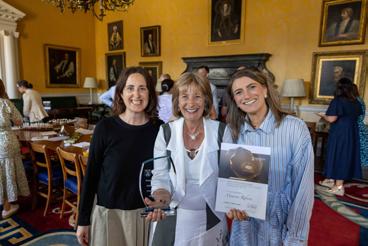
In addition to Maureen’s involvement in the development and delivery of the practice education preparation modules within the Discipline of Occupational Therapy, Maureen teaches on the assistive technology and seating academic module.

Maureen applies her innovative ideas, creativity and positive outlook to encourage, engage and inspire students to attain professional skills and competencies within the placement setting. At the heart of her teaching philosophy is a student centred approach with a strong value on reflection to enhance professional growth and professional identity.
Maureen has dedicated herself to ensuring that she remains current when it comes to advances in education, technology, and clinical practice to support the student’s teaching and learning experience. Maureen applies different types of mediums to ensure that students with diverse learning approaches are catered for both within the classroom and in the clinical setting.


On April 30 2023, a group of seven Trinitarians from the Global Brain Health Institute (GBHI) took part on a 7-day experiential ‘walking think tank’ for dementia along the historic Camino de Santiago. Joined by a selected, interdisciplinary group of people working with or living with dementia from 40 countries, the group walked 50 km, reaching the cathedral at Santiago de Compostela on day 4. A 2-day symposium of presentations from walkers followed.
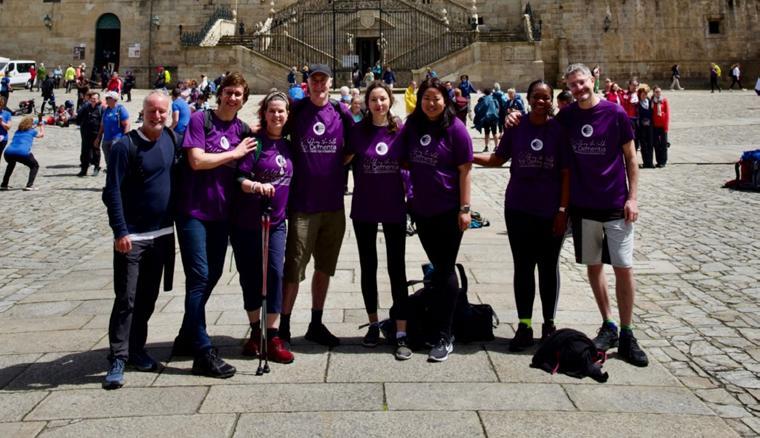
Organised by Fernando Aguzzoli-Peres, a journalist from Brazil and Atlantic Fellow for Equity in Brain Health (TCD, 2019), the purpose of the event was to raise awareness about the common humanity of people living with dementia and those supporting them. The aim was also to share experiences, work, visions and challenges, forging new relationships, and radical collaborations to address global threats to brain health. The group included people with lived experience, family members, care partners, advocates, researchers, activists, cognitive neuroscientists, geneticist, clinicians, entrepreneurs and community organisers.
In Ireland, over 64,000 people are living with dementia, and many more are at risk. Stigma and lack of understanding is still high and not enough research is being done to find better ways of preventing and managing the condition.
Read the blog here: https://www.gbhi.org/news-publications/walking-talkdementia-camino-brain-health
Senior and current Fellows and Faculty of the Global Brain Health Institute, TCD Alex Kornhuber (photographer, Spain/Peru), Iracema Leroi (geriatric psychiatrist, Dublin), Aline Haas (dance researcher, Brazil), & Brian Lawlor (Dublin), Stefania Ilinica (healthy policy, WHO Copenhagen), Melissa Chan (design consultant, Luxembourg), Khanyo Ngcobo (geriatric psychiatrist, South Africa), Agustin Ibanez (cognitive neuroscientist, Dublin/Argentina).



Creative Brain Week Returns to Celebrate the Relationship Between Creativity and the Brain. Now in its second year Creative Brain Week, a Global Brain Health Institute (GBHI) innovation at Trinity College Dublin, has rapidly achieved local and international significance in its exploration of how brain science and creativity collide. From March 6th-11th inperson attendees and a global online audience, explored the theme of Conflict, Imagination and Joy through a packed talks programme and revelatory exhibitions. The thoughtprovoking event examined questions such as: How are artists and scientists connecting to explore, examine and educate? What lessons can be learned when conflict is transformed into care? Where could imagining a culture of care lead science, arts and policy? Speaking about this year’s event Professor Brian Lawlor, GBHI Site Director at Trinity College, said: “Creative Brain Week 2023 explored the brain science of creativity and how it helps to solve conflict at an individual and societal level and why creativity, imagination and joy are central to our health and wellbeing.” The programme, which was developed from a collaborative international network within GBHI, seven global Atlantic Fellows equityfocused programmes and supported by innovation across multiple Trinity departments, featured over 100 speakers hailing from medicine, neuroscience, education, the arts, industry and more. Speakers from the School of Medicine included Professor Iracema Leroi who discussed Inclusive Research, including the Sense Cog project and Professor Sean Kennelly who considered the inclusion of people with Down syndrome in clinical trials for dementia. The keynote speaker was Christopher Bailey, Arts and Health Lead at the World Health Organization (WHO), who examined Joy as Healthcare We’re already looking forward to Creative
At Creative Brain Week 2023, participants gather on stage for the "Complex Joy? A Celebration of Brain Health in People with Down Syndrome" session hosted by Global Atlantic Fellow Eimear McGlinchey and Assistant Professor in Intellectual Disability in the School of Nursing and Midwifery at Trinity (back row, right).


Brain Week 2024 which will explore “Attention, Connection and Love”! To find out more and to view talk recordings please visit: www.creativebrainweek.com
Creative Brain
Week is a Global Brain Health Institute innovation at Trinity College Dublin with support from the Atlantic Institute and Creative Ireland, presented in association with The Jameel Arts and Health Lab, in collaboration with the World Health Organization (WHO). such as forging new relationship with Social Innovators such as ReThink Ireland to resources to share and nurture our community ideas. I am committed to creating space and resources for staff and students to become TCD champions and ambassadors of Civic Engagement nationally and globally.
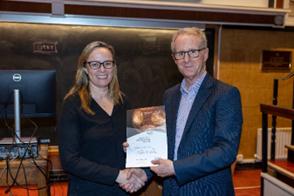
Launched in 2015, the Dean’s Award for Innovation in Teaching in the Faculty of Health Sciences. The spirit of the Award is to encourage teaching innovations within the Faculty where the outcomes will be shared with colleagues across the Faculty and beyond. Five principal investigators from the School of Medicine were honoured with Dean’s Awards recently.
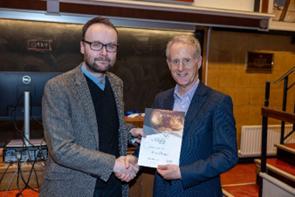
They are:
* Dr Denis Barry, Assistant Professor, Discipline of Anatomy
* Dr Annemarie Bennett, Assistant Professor in Dietetics, Clinical Medicine
* Prof Eric Downer, Associate Professor, Discipline of Physiology
* Prof Michelle Leech, Associate Professor, Discipline of Radiation Therapy,

* Ms Clare Whelan, Clinical Skills Tutor, Department of Surgery

In describing the Award, Professor Brian O’Connell, Dean of the Faculty of Health Sciences said:
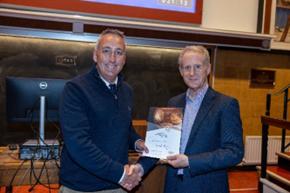
“The Faculty of Health Sciences strives to embed the principles of Equity, Diversity and Inclusion (EDI) in all that we do. In a clear demonstration of our commitment to this, the 2022-23 call looked for evidence that EDI is embedded throughout the teaching innovations.
We are very pleased with how the Faculty responded to this, and look forward to seeing these projects come to fruition in the coming year.”

The TCD-MED Research Seed Awards Programme supports new and innovative research with the aim of enhancing School of Medicine researchers’ ability to compete for large-scale, external awards. Six new awards have just been announced. The awards will provide funding for approaches that aim to optimise the translation and communication of the school’s research impact and benefit to society. A broad range of research disciplines were acknowledged through
the awards, including paediatrics, cancer, molecular rheumatology, molecular psychiatry, medical education and precision medicine. One of the primary aims of the TCD-Med Research Seed awards is to support early career researchers by providing them with an opportunity to develop their own research ideas as Principal Investigators on a grant.
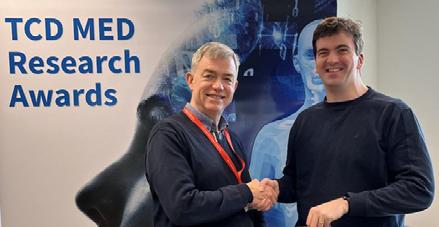
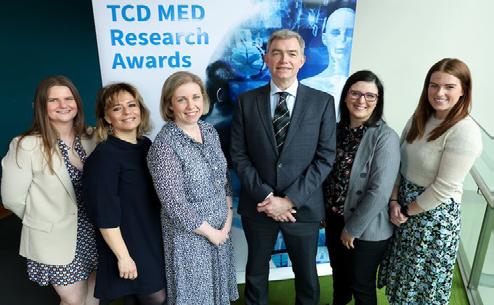
Aoife Branagan, Lecturer/Registrar
Discipline: Paediatrics
Title: An Ex-Vivo Study of Azithromycin and Melatonin for Immunomodulation in the Treatment of Neonatal Brain Injury.
Daniela Tropea, Associate Professor in Molecular Psychiatry
Discipline: Molecular Psychiatry
Title: Sex-dependent mechanisms and response to treatment in Disorders of Brain Development.
Elaine Burke, Research Fellow
Discipline: Medical Education

Title: Does facilitating intrinsic motivation in junior doctors enhance job satisfaction and retention?
Megan O’Shaughnessy, Research Fellow, TTMI
Title: Does the lung microbiome profile predict risk of lung cancer in people with COPD?
Viviana Marzaioli, Research Asst Prof Molecular Rheumatology
Discipline: Molecular Rheumatology
Title: Pathogenicity and immunogenicity of osteoclasts in Rheumatoid and Psoriatic Arthritis patients: identification of specific orchestrator of bone re-modelling.
Daniel Johnston
Discipline: Anatomy
Title: Rational design of 3D organotypic in vitro models of the inflammatory skin disease hidradenitis suppurativa towards a high risk, high reward application for an ERC Starting Grant.
Commenting on the awards, Professor Colin Doherty, Head of School of Medicine, said: “Congratulations to the six newlyawarded researchers of the TCD-MED Research Seed Awards for 2023. Each awarded individual proposes research ideas that can offer real possibilities to impact people’s lives. I wish them well in their efforts and look forward to learning of the outcomes of their projects.
Aoife said: “This award will fund research on novel treatment strategies for babies born with Neonatal Encephalopathy, hopefully leading to improved outcomes in the future.”
Daniela said: “This achievement is a small step towards a big change.”
Elaine said: “This study explores the problem of doctor retention in Ireland from a new perspective. Findings could inform educational strategies to improve job satisfaction and support resilience among doctors, potentially benefitting staff, patients and the healthcare system.”
Megan said: “Ultimately the goal of this research is to help make a real-world difference for those impacted by lung cancer and COPD.”
Viviana said: “I am excited to receive this award that will help expand our knowledge of Inflammatory Arthritis pathology, for improved patient care.”
Daniel said: “This award gives me a steppingstone to dream big and start performing research with dramatic impact for people with HS.”
Welcome to a brand-new immunology podcast where Dr. Lara Dungan and Dr. Vyanka Redenbaugh interview a leader in the field each month to find out all about what’s going on in the immunology labs and clinics all around the world. So grab yourself a cup of tea, sit down and relax, and we’ll give you your fix of immunology news. Search “immunotea” on spotify, apple podcasts, or wherever you get your podcasts.
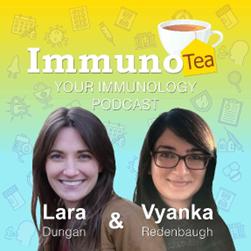
As part of the FHS EDI Visiting Professor Series, Dr. Donal Wallace hosted Dr. Duncan Shrewsbury, a queer GP and lecturer in Brighton and Sussex Medical School Duncan delivered talks and workshops on Inequalities and Inclusion in Healthcare, curriculum change, GP training with a focus on LGBTQIA+ inclusion in healthcare.
http://www.tcd.ie/healthsciences/events/ vp2023shrewsbury.php


Researchers at the School of Medicine have published the first Cochrane Systematic Review of Neoadjuvant Treatments for Melanoma. The review was produced through a collaboration between staff and postgraduates within the School of Medicine and School of Nursing and Midwifery and was supported with funding from the Health Research Board Cochrane Fellowship awarded to the Principal Investigator Dr Claire Gorry. The team from the School of Medicine included Dr Claire Gorry, Dr Laura McCullagh, Dr Michael Barry, Dr Rupert Barry, Sarah Barrett and Mr Eamon Beausang. Cochrane is a global independent network of researchers, professionals, patients, carers and people interested in health. Cochrane produces reviews which study all of the best available evidence generated through research and make it easier to inform decisions about health. Cochrane is renowned for their gold-standard systematic reviewing, and important impact. The review identified eight randomised controlled trials that included 402 adults. Most studies used immunotherapies or targeted treatments, and compared these with surgery, with or without adjuvant treatment. The researchers combined the results from some of the identified studies in a meta-analysis, and concluded it was uncertain whether neoadjuvant treatment helps people live longer when compared with no neoadjuvant treatment. It may lead to more adverse events and it is uncertain if it increases the time until the tumour comes back. The researchers concluded that there currently insufficient evidence to support the use of neoadjuvant treatment of melanoma in clinical practice. Priorities for research include the development of a core outcome set for neoadjuvant trials that are adequately powered, with validation of pathological and radiological responses as intermediate endpoints, to investigate the relative benefits of neoadjuvant treatment compared with adjuvant treatment with immunotherapies or targeted therapies.
The full review is available online on the Cochrane Library
 ImmunoTea podcast
FHS Equality Diversity and Inclusion Visiting Professor Series
Dr Duncan Shrewsbury
ImmunoTea podcast
FHS Equality Diversity and Inclusion Visiting Professor Series
Dr Duncan Shrewsbury
The Discipline of Anatomy held its Act of Remembrance and Thanksgiving on March 23rd in the College Chapel. It was a beautiful tribute to those who donate their bodies to medical education providing staff and students the opportunity to show their appreciation to the donors and their families for this invaluable gift. I would like to thank everyone involved in organising the ART, all those who attended, and our remarkable students for making it such a memorable occasion.
After completing the 5 year medicine program, the majority of students continue into intern year here in Ireland, or in the UK, with a minority opting to further their training in North America. This year, students matched to the following residency programs, which is a fantastic achievement. Congratulations to the students that matched, and to every final medicine student as they progress in their careers.

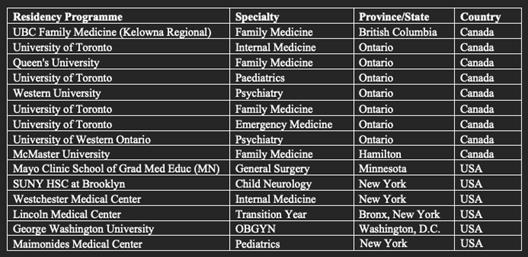


Prof Dermot Kelleher delivered an address on academic medicine past, present and future. The audience then moved upstairs to the John Stearne Library, where the Vice Provost, Professor Orla Sheils unveiled the painting on May 18th 2023
PI Prof Clíona Ní Cheallaigh is leading a research project seeking to integrate and link national data sets to be able to identify socially excluded people such those experiencing homelessness, people with substance dependencies, prisoners, and certain minorities (Travellers, aboriginal people) in order to understand their healthcare needs. The aim of the project is to create a database unifying data from HIPE, PASS, the prison system, and methadone treatment to enable the identification of people who are socially excluded and to then target services to improve their health outcomes. The project will yield learnings which will be of interest to many colleagues in the School of Medicine interested in using linked national datasets for research. It is a collaboration between TCD, the HSE Health Intelligence Unit and DCU’s Insight Centre for Data Analytics. A second part of the project, a realist review seeking to explain how social exclusion occurs across the lifespan is also underway, led by Research Fellow Dr Rikke Siersbaek.
More details about this review can be found on Prospero: https://www.crd.york.ac.uk/

The M.Sc in Translational Oncology in the School of Medicine was recently awarded ‘Best Masters Programme’ at the Education Awards 2023! The team were praised for their outstanding submission, “that showcased a truly exceptional programme, with the involvement of so many stakeholders in all aspects of the course from its design, development and delivery and assessment right through to the dissemination of information in relation to best practice”.


The M.Sc in Translational Oncology, now in its 11th year, was created by researchers in the Department of Surgery, School of Medicine, having trained over 200 highly skilled graduates. The course covers all aspects of cancer prevention, novel treatments and survivorship, with the invaluable opportunity to carry out world-class cancer research. With over 100 internationally renowned expert lecturers, spanning basic, translational and clinical research, oncologists, surgeons, allied healthcare professionals, patient advocates and industry partners, this course continues to develop and innovate in the field of cancer education and research. The course was also a previous winner of Best-New Postgrad course in 2014 by Postgrad Ireland and has continued to evolve and develop the curriculum, reflecting the needs of future cancer researchers and clinicians in Ireland and globally. The course’s innovative assessments are designed to develop invaluable hands-on experience for the students, including business pitch presentations, grant writing and clinical trial protocol design, ensuring their graduates enter the workforce armed with a unique array of skills that sets them apart. The global reach of this M.Sc. is also evidenced by the ever-increasing international student body.
The twitter account for the course is @MScTransOnc and the website is: tcd.ie/courses/postgraduate/courses/translationaloncology-msc/

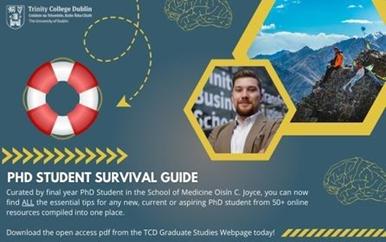
To most the life of a PhD student can be very difficult and an Avengers-level threat to many. Whether its struggles and strife with personal and academic issues to the concerns of a future career in academia or private industry, a PhD brings about many twists and turns. Many don’t know where to turn but we now have the answer! The PhD Student Survival guide curated by final year PhD Student in the School of Medicine Oisín C. Joyce is now live! ALL the essential tips for any new, current or aspiring PhD student from over 50+ resources online have been compiled into one place.

The nexus between ageing, the urban built environment, and urban ecosystems is highlighted. The potential synergies between people, the built environment, and ecosystems as they age and evolve are scrutinised. The important role for ageing, wisdom, lived experience, and local knowledge in urban transformation is discussed. Authors: Thomas Grey; Dimitra Xidous; Desmond O’Neill; and Marcus Collier.
DOI: https://doi.org/10.1186/s42854-023-00053-z
Our Postgraduate courses applications are open https://www.tcd.ie/medicine/education/ courses/postgraduate/
to Prof
on being presented with the Ussher Assistant Professor in Inflammaging
On the 20th of March, Head of the Discipline of Medical Gerontology Prof. Roman Romero-Ortuno presented Ussher Assistant Professor in Inflammaging Nollaig Bourke with her own academic gown, in the presence of her lab members, in a short “gownation” ceremony that took place in the Board Room of the Mercer’s Institute for Successful Ageing. With this newly established tradition, the Discipline of Medical Gerontology will celebrate the achievement of academic tenures in the Discipline. Congratulations Nollaig!!
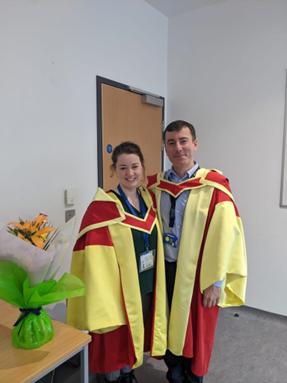
https://twitter.com/ TCDGerontology/ status/1637881325150412814

Dr Geraldine Foley, Assistant Professor, was an invited speaker at the 28th Annual International Moving Points in Palliative Care Conference on 22nd March 2023

Dr Foley presented research on patient and family caregiver decision-making in palliative care and an overview of research possibilities that can advance evidence in the field. The Moving Points in Palliative Care Conference is a key forum for educators, clinical practitioners, and researchers to examine developments in palliative care.

On 4th February 2023 representatives from the Trinity St James’s Biobank Network TSBN were educating the public on benefits of biobanking as part of World Cancer Day Activities. Information stands were set up at the Cancer Survivorship Event and in the hospital concourse.
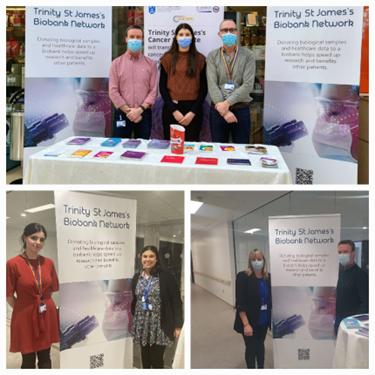
Dr Jennifer Conlan and Ms Triona Flavin have been conducting a study in Clinical Skills exploring the use of VR in medical training. Using our Meta Quest 2 VR headsets, third year medical students enjoyed playing some games before each carrying out an Oxford Medical Simulation (https:// oxfordmedicalsimulation.com/) emergency medicine virtual scenario. Watch this space!

Congratulations to Dr Niamh Carey, Department of Pharmacology & Therapeutics and National Centre for Pharmacoeconomics, who was awarded Best Student Poster Research Presentation at ISPOR Europe 2022. ISPOR is the leading professional society for health economics and outcomes research (HEOR) globally. The title of Niamh’s presentation was Axicabtagene Ciloleucel for Relapsed/ Refractory Diffuse Large B-Cell Lymphoma in the Irish Healthcare Setting: CostUtility and Value of Information Analysis. As part of this presentation, Niamh gave an oral presentation of her work. This study, which formed part of Niamh’s PhD research, evaluated the cost effectiveness of axicabtagene ciloleucel (CAR T-cell therapy), versus salvage chemotherapy, for the treatment of relapsed/refractory diffuse large B-cell lymphoma in the Irish healthcare setting. The value of conducting further research, to investigate the value of uncertainty associated with the decision problem, was assessed by expected value of perfect information. This research was conducted under the supervision of Dr Laura Mc Cullagh and Prof Michael Barry.


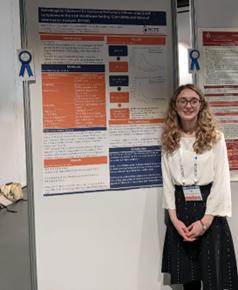
The Discipline of Occupational Therapy hosted a very successful Job Fair on April 13th 2023. Representatives from 30 services attended to meet with the graduating class, talk about their services, and update the students on recruitment opportunities. Students found the event very beneficial and welcomed the opportunity to meet with managers and service representatives as they prepare for entry into practice as new graduate therapists.
Prof. Seán Kennelly welcomed all attendees and members of the judging panels included Prof. Desmond O’Neill, Regius Prof. Rose Anne Kenny, Prof. Richard Reilly, Dr Mary Martin, Dr Nollaig Bourke, Dr Dan Ryan, Dr Amanda Lavan, Dr Ruth McDonagh, Dr Paul McElwaine and Dr Ciarán Finucane.

There were 19 fantastic PhD/MD/MSc (research) presentations, two peer-support sessions by Dr Sinéad McLoughlin and Dr Laura Pérez Denia, and two School supports sessions led by our Associate Director of Postgraduate Teaching and Learning Dr Julie Broderick.
The Head of Discipline Prof. Román Romero Ortuño awarded prizes to the following presenters:

• Panel 1 Medal: Dr Tim Dukelow (not pictured)
• Panel 2 Medal: Matt McElheron
• Panel 3 Medal: Dr Paul Claffey
• Special “Relevance for patient care” award: Dr Aoife McFeely
• Special “Promising scientific discovery” award: Dr Helena Dolphin
• Special “Scientific communication” award: Dr Kevin Mc Carthy

Congratulations to all winners and presenters, and sincerest gratitude to the organising committee, chairs, judges, School colleagues, attendees, and our wonderful Executive Officer Siobhán Hedigan for another fantastic annual celebration of postgraduate research in our Discipline!
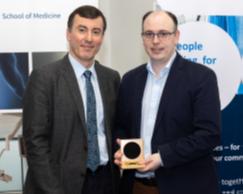 Matt McElheron and Prof. Román Romero Ortuño
Dr Paul Claffey and Prof. Román Romero Ortuño
Dr Aoife McFeely and Prof. Román Romero Ortuño
Dr Kevin McCarthy and Prof. Román Romero Ortuño
Dr Helena Dolphin and Prof. Román Romero Ortuño
Matt McElheron and Prof. Román Romero Ortuño
Dr Paul Claffey and Prof. Román Romero Ortuño
Dr Aoife McFeely and Prof. Román Romero Ortuño
Dr Kevin McCarthy and Prof. Román Romero Ortuño
Dr Helena Dolphin and Prof. Román Romero Ortuño
Every year the paediatric society in TCD organises a fundraising event known as Teddy Bear Hospital on campus. This year it will be held on Saturday the 6th of May. I was fortunate enough to talk with one of their committee members and, Molly Dempsey (3rd Med), in the run up to their event. The PaedSoc committee, chaired by Sravani Chalumuri (3rd Med), has worked tirelessly over the last few months to make this event a success and we wish them the best of luck!
In your own words, what is the purpose of an event like teddy bear hospital?



Teddy Bear Hospital is an annual event run by TCD Paediatric Society, a subcommittee of AMSI. There are two main purposes of the event. One is to raise much-needed funds for BUMBLEance, the children’s ambulance service of Ireland, who provide transport for children between their homes and hospitals, hospices, treatment centres, and respite centres nationwide. The second aim of Teddy Bear Hospital is to encourage an interest in medicine and science amongst children, promote healthy lifestyle habits, and, most importantly, help to alleviate some of the fear surrounding hospitals and doctors. The hope to ultimately make hospitals more BEARable for children and teddies alike! We hope that by exposing children to science and medicine in an enjoyable manner at a young age we can encourage the next generation of Teddy Doctors and indeed, real doctors and scientists, too.
How long does it take to organise an event like this?
Planning for Teddy Bear Hospital takes months but most of the work takes place in the weeks before and involves emailing and asking for donations and sponsorship, arranging supplies, organising our volunteers, and advertising tickets for the event. It is a lot of work!
How did the event go last year and have you made any changes to how you will run things this year?
Last year was the first year we had coordinated Teddy Bear Hospital but it was also the first in-person Teddy Bear Hospital we had ever seen due to Covid. The event went really well in the end last year, despite nearly everything being planned at the last minute and the committee having no idea what we were getting ourselves into! The volunteers made it a big success and everyone came together on the day, taking initiative if they saw something that needed doing and going above and beyond to make it enjoyable for the children and families. This year the committee has a lot more experience so planning it has gone a lot more smoothly. Also, this year BUMBLEance has kindly supplied an ambulance for the event so children can see what it’s like to be inside of an ambulance. We think this will be a great addition!
How do you attract children to Teddy Bear Hospital?
We use social media to advertise the event. We are on Facebook, Twitter, and Instagram. We also send out emails to schools in the area asking them to spread the word about the event. We have done a number of school visits with the Paediatric Society where we do a mini–Teddy Bear Hospital in the classroom, so these schools are aware of what we do every year.
What are your hopes for this year’s event?
This year we’re hoping to have a smoother flow of attendees; we added a small charge of €2 per ticket this year in the hopes of encouraging people to come for their allotted time slot and preventing no-shows. This money will go towards our BUMBLEance donation which we hope to increase on from last year. We have already sold more tickets this year than last
The Senior Times 50 Plus Show was held in the RDS earlier this month, where members of TILDA’s research and health assessment team put on a hugely successful interactive research exhibit showcasing some of our latest research findings, news, and study updates.


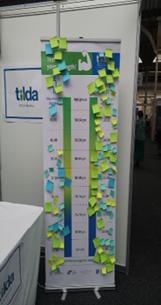
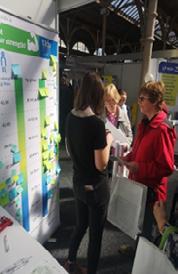
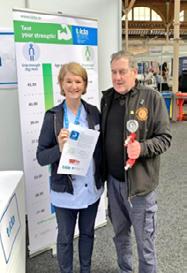
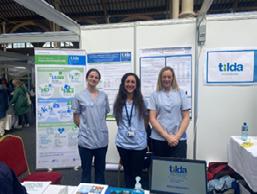
Event attendees had the opportunity to talk with members of our team and get a first-hand look at some of the brand new research infographics about Physical and Mental Health, Healthy Eating, Brain Health, and Vitamin D.

As part of the TILDA exhibit, the team performed grip strength tests (from the TILDA health assessment) on members of the general public charting their results which generated great competition and buzz amongst the attendees.
In addition to the exhibit, Dr Joanne Feeney, Senior Research Fellow and TILDA’s Cognitive Neuroscience Group Lead delivered a lecture ‘Healthy Brain Ageing’ and the latest findings from TILDA in the public theatre to a packed house. Joanne’s lecture shed light on the importance of understanding how to maintain optimal brain health and reduce cognitive decline among the population. Factors such as staying physically active, maintaining social connections, eating a nutritious diet, and engaging in cognitively stimulating activities have been found to be crucial for healthy brain ageing. The lecture received excellent feedback from members of the public and event organisers alike.
A big thank you to the members of the team that volunteered their time to making the event such a success – over a sunny weekend! These included management and research staff; Niamh Clarke, Lucy Doogan, Joanne Feeney, Ann Monaghan and Deirdre O’Connor, and Siobhan Scarlett (with a special guest appearance by baby Cathal) and some of our stellar health assessment team; Miriam Fitzpatrick, Mary Hickey, Linda Lisanti, Michelle O’Grady, Frances Round and Gwen Searle.

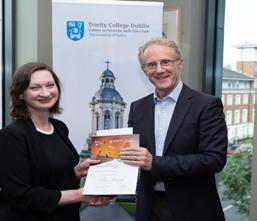
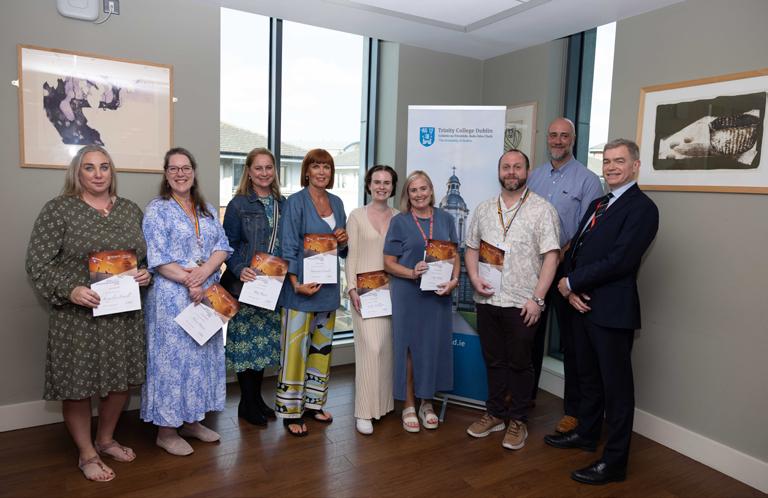
On the 6th of June the Dean of the Faculty of Health Science held it’s Inaugural Dean’s Award for Professional & Support Staff for all four schools within the Faculty. The School of Medicine were awarded with the Team, Innovations with Impact and Exemplary Performance Awards It was a lovely evening meeting staff within the Faulty schools. For further information on these awards view the Faculty website


An innovative new project aiming to develop a personalised prediction tool to assist in managing the recurrence of autoimmune diseases in a patient has officially been launched this week. PARADISE, PersonAlisation of RelApse risk in autoimmune DISEase, kicked off officially on the 3rd and 4th of April 2023 featuring presentations from TTMI School of Medicine researchers Angel George and Conor Finlay. The project is coordinated by School of Medicine and ADAPT Principal Investigator at Trinity College Dublin, Prof. Mark Little, with partners across several institutions in Europe.
According to the PARADISE consortium, autoimmune disease affects 10% of all adults and, in particular, women are the most affected by these diseases. Medications to manage these conditions also have a very high cost globally and work to suppress the immune system, which often leads to patients becoming more susceptible to increased infection and cancer risk.
A key target for research by the PARADISE consortium is the prediction of relapse, or those patients in whom relapse is extremely unlikely, for patients with Vasculitis so that medication doses can be tailored or in some cases, stopped entirely. As artificial intelligence (AI) applications are coming under intense EU scrutiny, the consortium will also co-develop an “AI transparency notice” so as to explicitly explain the PARADISE tools clinical outputs.
Project partners include:
Anto Čartolovni, Catholic University of Croatia, Croatia
Elisa Pin, KTH Royal Institute of Technology, Sweden
Harald Binder, University of Freiburg, Germany
Stéphanie Boutillier, Firalis S.A., France
Dipak Kalra, The European Institute for Innovation through Health Data AISBL, Belgium
Julie Power, Vasculitis Ireland Awareness, Ireland
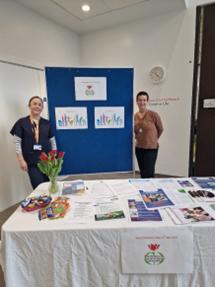

Juliana Bordignon Draibe, Bellvitge Biomedical Research Institute, Barcelona, Spain
Parkinson’s Day is observed annually on April 11th to raise awareness about Parkinson’s disease and the challenges faced by those who live with it. The date was chosen to commemorate the birthday of James Parkinson, the British physician who first described the disease in 1817.
To launch Parkinson’s Awareness Month Dr Aline Haas, Associate Professor and Atlantic Fellow for Equity in Brain, in collaboration to Marina Cassidy and Roisin Hayes, music therapists, produced a dance demonstration for both patients and staff from St James’s Hospital on April 5th. The event was organized by Roisin Nevin, Creative Life Coordinator at the Mercer’s Institute for Successful Ageing (MISA), St James’s Hospital.
The dance demonstration at St James’s Hospital was a great opportunity to raise awareness about Parkinson’s disease, share information and resources. By providing a supportive and inclusive environment, dance can help people with Parkinson’s improve their physical and mental health, making a positive impact on their quality of life and well-being. Research suggests that dance can improve motor function, balance, gait, and overall quality of life for people with Parkinson’s, and also help with cognitive function, mood, and socialization. Overall, dance can be a fun and effective way for people with Parkinson’s to connect with others in their community.
Anna Mullen, Parkinson’s Disease CNS, St James’s Hospital, and Aline Haas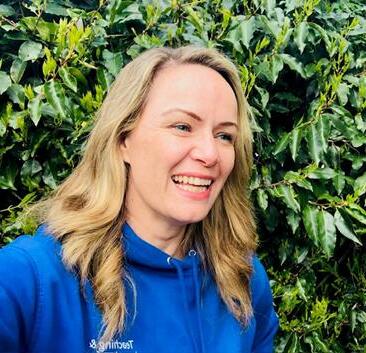 By Iracema Leroi
By Iracema Leroi
Biosketch

Clare Whelan, Clinical Skills Tutor, based at St James’s Hospital, trained at Queen’s University Belfast and Trinity College Dublin. Before joining SoM, Clare worked as a nurse in General Medicine and Surgery in Guernsey and Australia and as a Clinical Nurse Manager in Cardiothoracic Surgery in St James’s Hospital Dublin.
Clare, to begin with, could you describe your role as Clinical Skills tutor in TCD?
As a clinical skills tutor, I am involved in the planning and organisation of clinical skills modules as well as the teaching of clinical skills in the classroom setting. Myself and my colleagues provide tuition to the
undergraduate medical students as well as medical interns. The skills we teach include venepuncture, basic life support training, simple suturing and communication skills – to name but a few.
How did you come to be in this role?
I originally trained as a nurse and spent many years working in the cardiothoracic department in St James Hospital in that capacity. However, I have always had an interest in teaching and had been involved in the organisation of teaching programmes for nursing staff for a number of years before I came to this role. The opportunity to become a clinical skills tutor in the School of Medicine arose in 2006. I applied for the role and was successful.
On the 21st of April 2023 we had the pleasure of interviewing Ms. Clare Whelan, Clinical Skills Tutor.
in-person learning remains a key factor in the teaching of clinical skills
One of the most significant changes that I have noticed over the last few years has definitely been a dramatic increase in the volume of students studying medicine here in Trinity. We do the majority of our teaching in a small group setting so this has been something we have had to adapt to over time. Since the COVID19 pandemic, I have noticed that students have a greater desire for online learning and the dissemination of resources online. We have made efforts to accommodate this new shift in learning however practical, in person learning remains a key factor in the teaching of clinical skills. The role itself is very dynamic and I have found that there is huge potential for collaborative teaching with the use of technology.
We have expanded our online clinical skills resources in recent years. This is of benefit not only to our undergraduate students but to clinical staff also, for the purpose of refreshing their skills. There have been some wonderful opportunities over the years especially with regard to exploring personal interests of mine - such as sustainability in the hospital setting, through research.
The most satisfying part of my job is the actual teaching I do on a day-to-day basis. I thoroughly enjoy the interaction with students especially in a small group setting. You get to know them on an individual level and to see their progression throughout their time in medical school is very special. When they begin their clinical skills training in 2nd year, they are sometimes apprehensive of what lies ahead of them but by the time they get to final year they have developed a great sense of competence and confidence in their skills. In final year, you can see students consolidating their skills, learning from each other and really starting to embrace the profession they are about to enter. It is very satisfying to see this development and to be a part of it also.
As 1st and 2nd year are so academically dense, the introduction of practical, clinical skills at the end of 2nd year offers a very different outlet for students. Certain motor skills that may not have been challenged before, take time to be developed. Not every student will master a skill in the same time frame and so this requires time, patience and guidance to allow these skills to come to fruition; depending on the individual. Our students are all very engaged and are keen to step away from the books and immerse themselves in a different environment.
Communications skills has always fascinated me. The art of history taking and discussing health related issues with patients in a sensitive manner can take time to master. This skill may come naturally to some and not to others and there may also be certain cultural or language differences between students. This process requires direction and guidance as well
as self-reflection on the part of the student. I think a great addition to our teaching and examination modalities has been the use of actors or ‘standardised patients’. These allow for the introduction and exploration of specific concepts and aspects of communication skills in a controlled environment.
The role is constantly evolving and I think there is a lot of potential for incorporating elements of virtual reality technology and high-fidelity simulation learning into our curriculum. But, in the end, we will always need the basis of a hands-on approach. I believe the development of dexterity and motor skills will remain a key part of clinical skills teaching for the foreseeable future. At least, I hope there will always be place for human interaction in medicine; I wouldn’t like to see it all go remote! Additionally, I think the role will probably expand over the next few years to maintain the standard of quality of teaching for an increasingly large number of students.
I recall in my very first interview for this position in 2006, I was asked almost that exact question… what would I bring to the role? I think that my answer would remain the same. As I answered then, I think what I bring to the role, is the nurse in me. My training in nursing gave me a great insight into how to work collaboratively with other people… well that and growing up in a family of twelve! As a nurse, I have a profound interest in all aspects of patient care, multidisciplinary management and advocacy as well as great basis of practical skills knowledge. In this role, I am point of contact for students throughout their time in medical school and I really enjoy that interaction and seeing their personal development. In a sense, clinical tutors offer an almost pastoral role to our students. In a job so variable and with such potential to push boundaries, there is never a dull moment!
It was a pleasure to talk with Clare, who was very generous with her time!




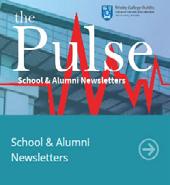





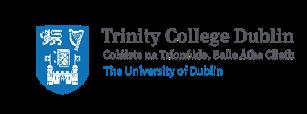

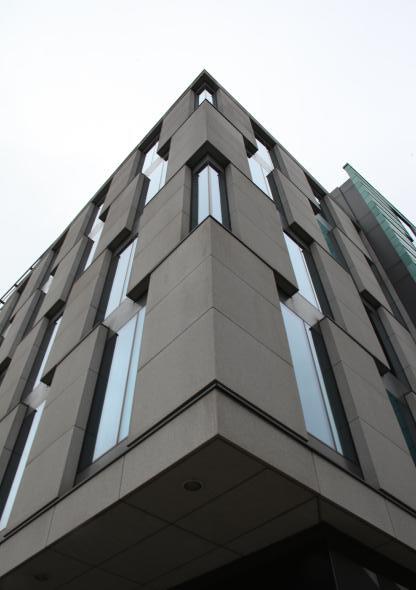 Marie Cormican
Iracema Leroi
Marie Cormican
Iracema Leroi